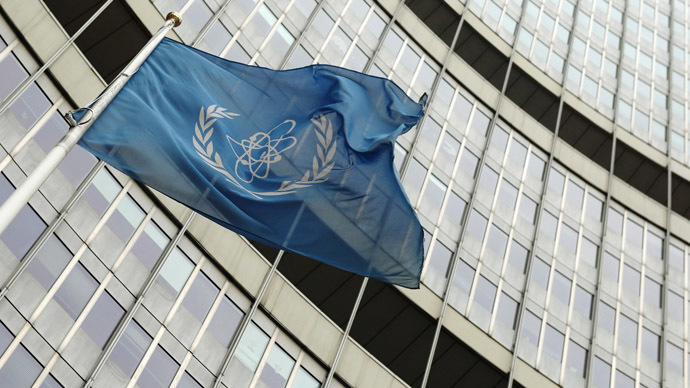Terrorist ‘dirty bomb’ as easy as ever due to political upheaval, wider nuclear access

The UN’s nuclear watchdog has warned about the continuing threat of terrorists acquiring a “dirty bomb” after revealing that 146 incidents of unauthorized contact with radioactive materials were reported last year.
"Even if they [stolen materials] can't be used for making a
nuclear weapon, they can be used in radioactive dispersal
devices, which is a concern," Denis Flory, deputy director
general of the International Atomic Energy Agency (IAEA), told
Reuters ahead of a nuclear security summit next week.
Since beginning its Incident and Trafficking Database in 1993,
the agency has recorded more than 2,400 illegal incidents. While
most of them involved people accidentally coming upon dangerous
materials – such as the scrap metal workers in India who came
into contact with an old irradiator in 2010 – more than 400 are
attempted crimes.
The figure from last year is broadly in line with the pattern for
the past decade.
Flory said the most dangerous period was the aftermath of the
break-up of the Soviet Union, where large stashes of radioactive
materials were spread over a vast territory in a country that was
transitioning from being a tightly-controlled state to a number
of smaller entities.
But recent global instability in the Arab world means that risks
of an uncontrolled spread of materials – and the demand for them
– could be on the up again.
Notoriously, there are tonnes of uranium yellowcake stored in an
ordinary warehouse near the city of Sabha in Libya’s unstable
desert south – a situation that hasn’t been resolved in three
years, despite the UN’s efforts.
As the use of nuclear technology widens and spreads to relatively
poorly-secured areas, such as hospitals, the task for potential
terrorists could become easier, according to the IAEA officials.
The sophistication of technology available to terrorists is also
possibly rising, though impossible to accurately monitor until
they are caught.
“There is still a lot of work to do,” summed up Flory,
ahead of a worldwide nuclear summit that will begin in The Hague
next week. World leaders from 53 countries are expected to call
for more international action to help prevent radical groups from
obtaining atomic bombs.












